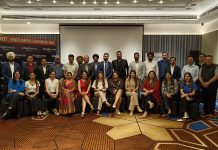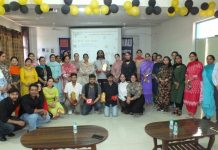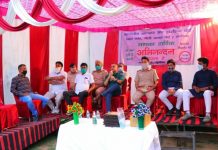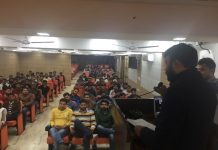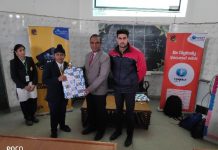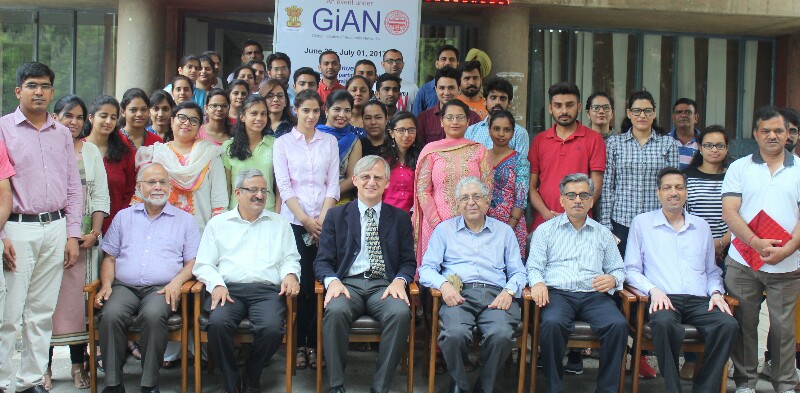
Chandigarh
26 June 2017
DIVYA AZAD
Second phase of MHRD Global Initiatve of Aademic networks(GIAN) program began here today with the commencement of one week international workshop on the theme
“Transition Metals in Organic Synthesis” by leading expert Prof Roderick Bates from
Nanyang Technical University, Singapore.
Local GIAN Coordinator and Director SAIF/CIL Professor S.K.Mehta welcomed the guests and elaborated the objectives of the GIAN program. Six GIAN programs by foreign faculty from U.S.A., Germany, U.K. and Canada were successfully organized during Phase I in 2016.
Professor Raghuram Rao, Director, NIPER, Mohali, Chief Guest, in his inaugural
address, deliberated on the enormous headway of metals in the organic synthesis, emphasising upon the key role of organometallics as an emerging field in industries.
Complementing the organizers for their meticulous and superlative efforts, Vice
Chancellor Professor Arun K Grover, in his presidential remarks, delivered a brief
note on the genesis of GIAN program, and motivated the young participants to follow
the foot prints of the legends and to march ahead for higher echelons in their
research objectives for inter-disciplinary and multi-disciplinary research activities at national and international level.
Dr. Deepak Salunke, Course Coordinator highlighted the contents of the course and
introduced the Foreign Faculty Prof Roderick W Bates. He also highlighted the major objectives of the course and elaborated upon the fact that the basic aim of this workshop is to make us understand structures and reactions of transition metal and how they differ from the chemistry of main group metals.
Prof Roderick Bates, thanked the MHRD for the opportunity and displayed deep enthusiasm for the upcoming course. Prof. Bates specially mentioned that he accepted the invitation for this course because of his interactive experience with Panjab University students during his previous visits for ANNUM and CRSI conferences. He added that the workshop will demonstrate the understanding by drawing mechanisms for both catalytic and stoichiometric reactions. This tailored workshop would help all of participants to comprehend how the application of this special chemistry differs between the fine chemicals and bulk.















